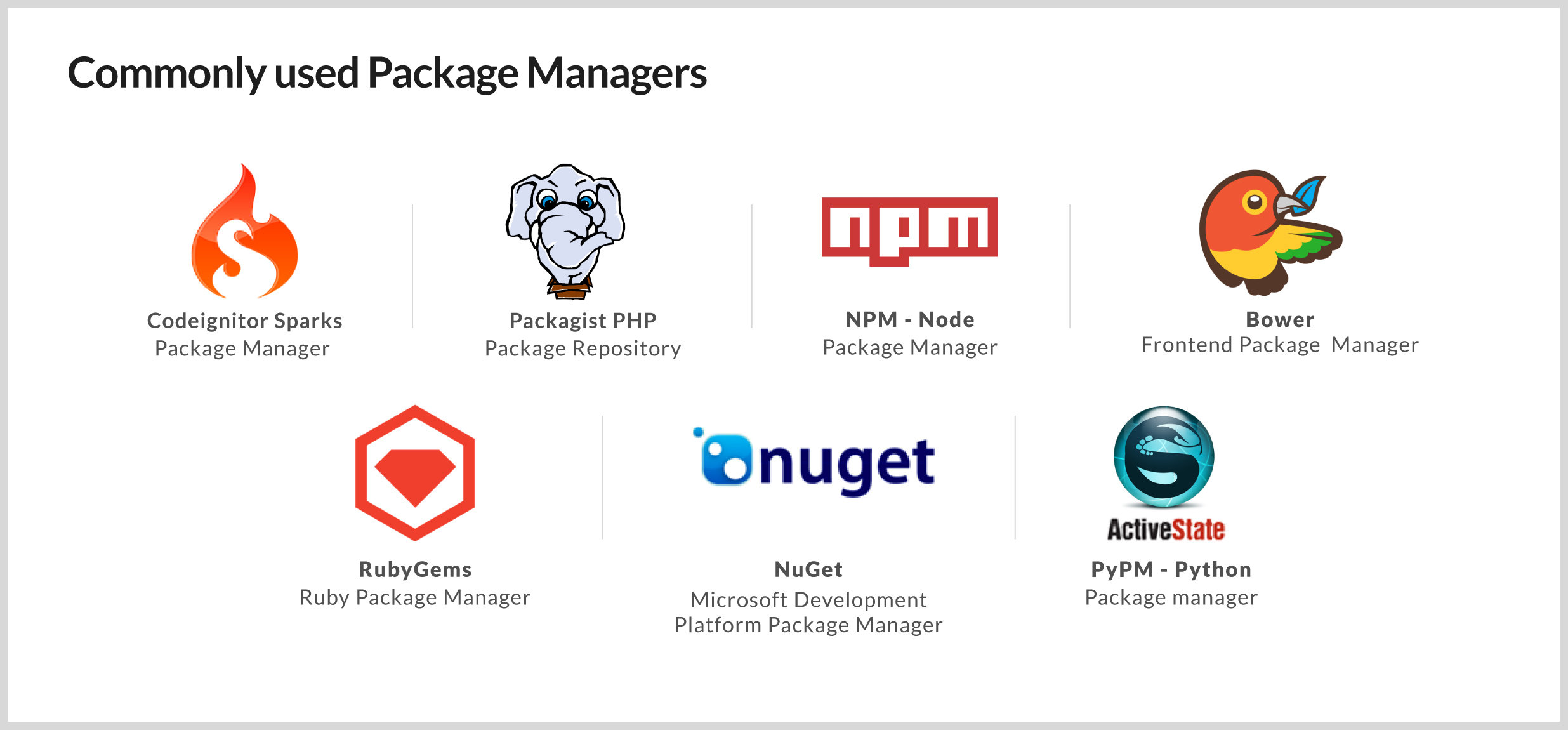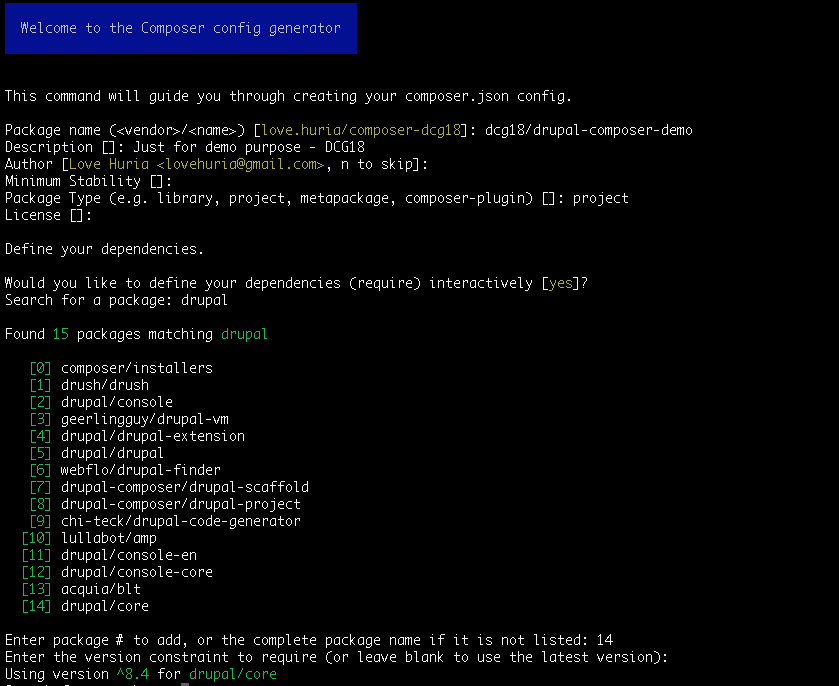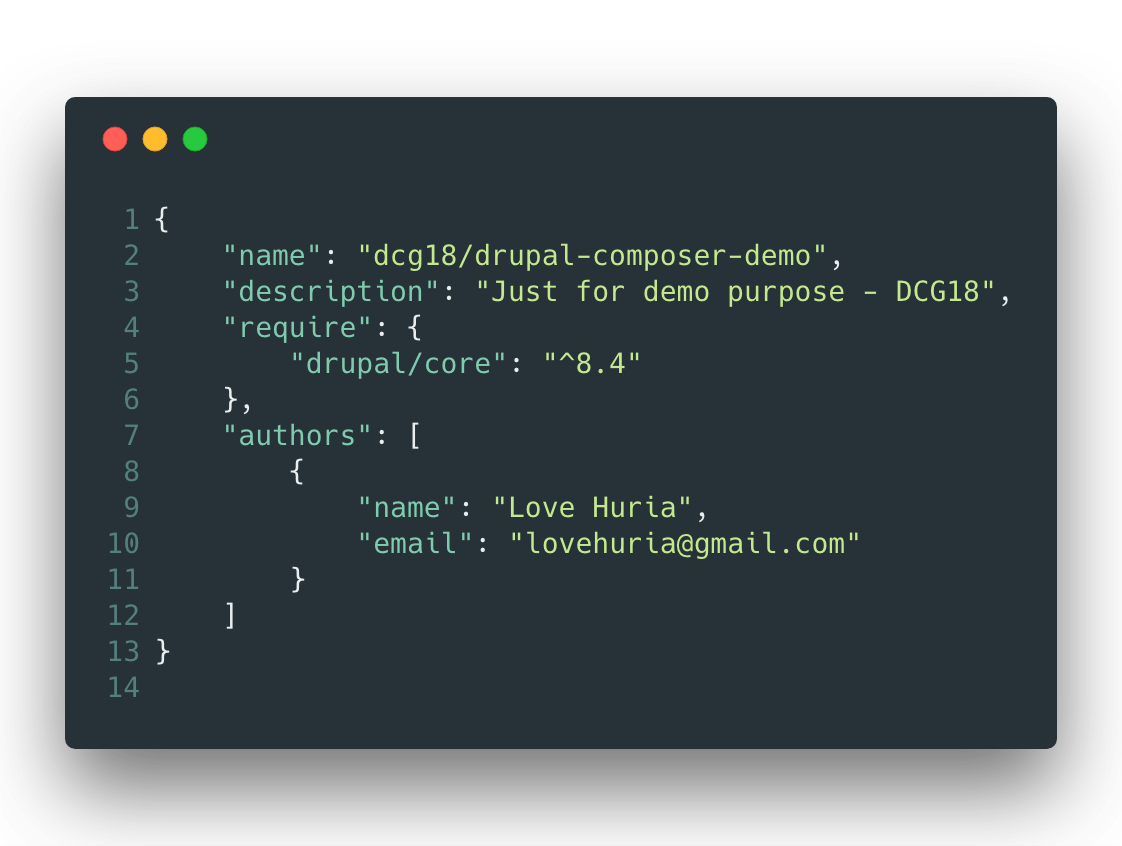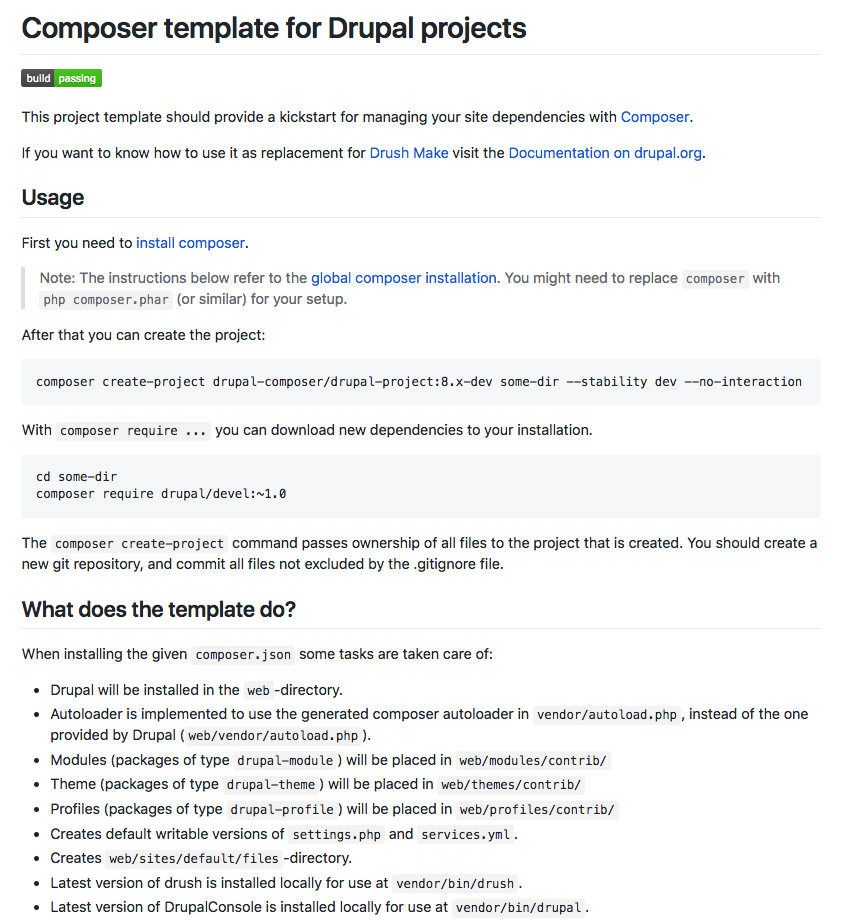Composer - The Missing Package manager for PHP





Love Huria
@LoveHuria
Ashutosh Singh
@0ashutosh0

Born and raised in Kaithal, Haryana, India
Senior Web Developer (Drupal/PHP, Javascript, CSS3, HTML5)
Born and raised in Bhopal, MP India
Team Lead
What Are We Going to Cover:


- What is Composer?
- Why bother..
- Composer Installation
- Useful commands
- Setting up a Drupal instance using Composer
Composer - "one who puts together"


Per-project PHP dependency manager
It allows you to declare the libraries your project depends on and it will manage (install/update) them for you.
Packages maintained on https://packagist.org/
Released in 2012

Confused?
ok, Let's break it down!


Example
A
B
Projects
C
D
E
C
D
F
G
Both projects can have respective versions of a library
installed



Problem:


- To use consistent versions of the dependencies in a project across all team members
Pear - Can't install a package on per-project basis
Git submodules/subtrees - Not really documented/supported well
Composer!
Solution:
- Share your own library
Why bother with Composer?


Composer Installation (Linux/OSX)
$ php -r "copy('https://getcomposer.org/installer', 'composer-setup.php');"
$ php -r "if (hash_file('SHA384', 'composer-setup.php')
=== '544e09ee996cdf60ece3804abc52599c22b1f40f4323403c44d44fdfdd586475ca9813a
858088ffbc1f233e9b180f061')
{ echo 'Installer verified'; } else { echo 'Installer corrupt';
unlink('composer-setup.php'); } echo PHP_EOL;"
$ php composer-setup.php
$ php -r "unlink('composer-setup.php');"Visit: http://dcg-workshop.surge.sh/
Useful Commands


$ composer initThere is no need to create the composer.json file manually, There is also an init command available that makes it a bit easier to do this.


$ composer init


$ vi package.json
Useful Commands


$ composer install
The install command reads the composer.json file from the current directory, resolves the dependencies, and installs them into vendor.
Useful Commands


$ composer update
Get the latest versions of the dependencies and this will resolve all dependencies of the project and write the exact versions into composer.lock
$ composer update vendor/package
If you just want to update a few packages and not all.
Useful Commands


$ composer require
The require command adds new packages to the composer.json file from the current directory. If no file exists one will be created on the fly.
$ composer require vendor/package
If you do not want to choose requirements interactively, you can just pass them to the command.
Useful Commands


$ composer self-update
To update Composer itself to the latest version, just run the self-update command. It will replace your composer.phar with the latest version.
Installing Drupal 8





<Thank You/>


Questions?
